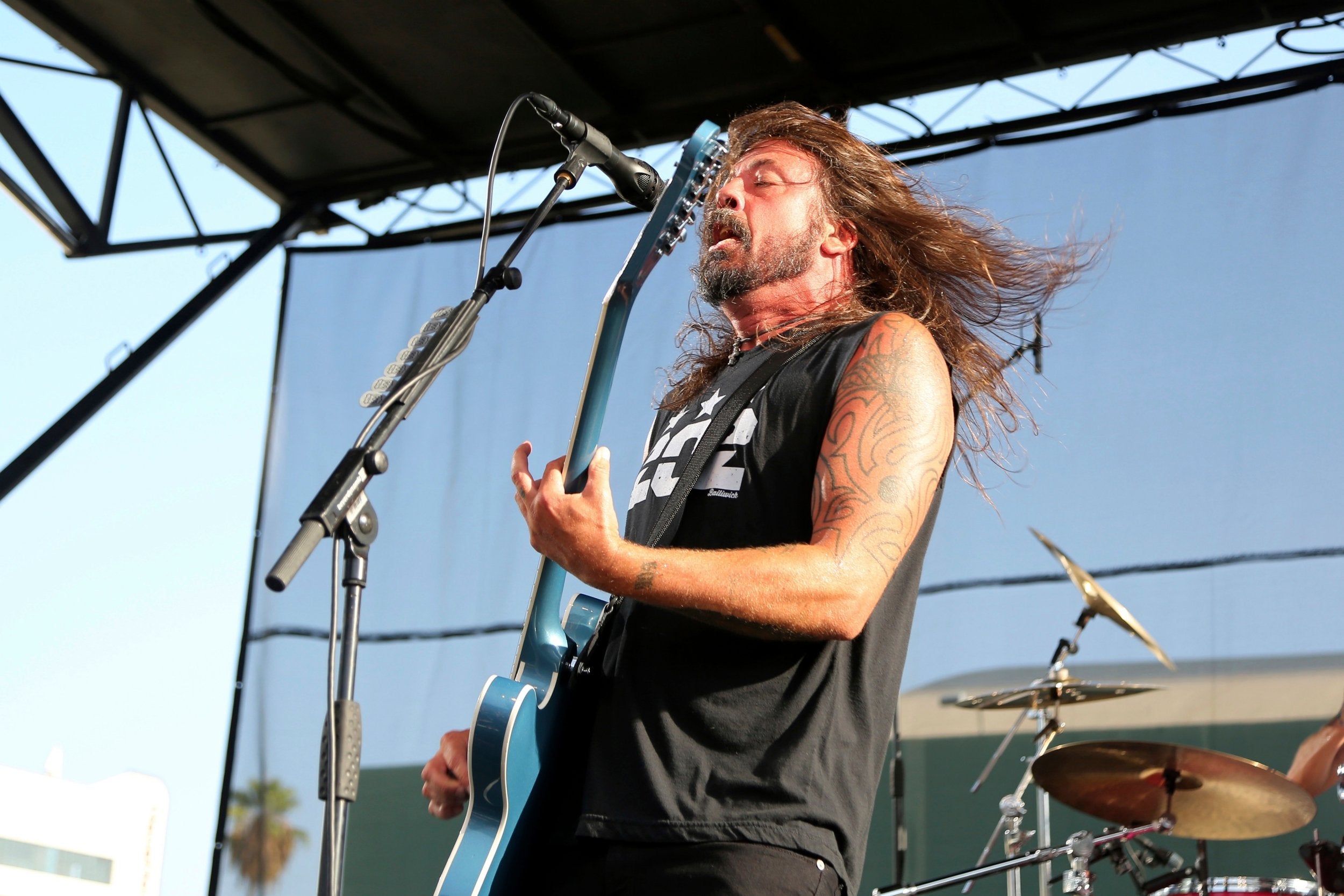Reading and Leeds are keeping themselves on the wrong side of history by refusing to book female headliners
By 2019, Reading and Leeds will have hosted just one female-fronted act as a headliner in 20 years. Roisin O'Connor explains why this matters

How can you claim to support female artists when your own festival stages are virtually empty of them? That’s the question Reading and Leeds organisers should be asking themselves right now.
The answer is, of course, that you can’t. As people retweeted a post about The Mirror’s rather wonderful mix-up of a picture of Post Malone – one of the festival’s four all-white, all-male headliners for 2019 – with one of pop star Rita Ora dressed as him for Halloween, a wildly depressing thought crossed my mind. This was probably the closest a female act has come to headlining Reading and Leeds in years.
Festival boss Melvin Benn, who has repeatedly insisted the lack of female-identifying acts at his festivals is not an issue, attempted damage control over last year's headline backlash by telling the BBC he planned to create a “bigger pool of female acts” to choose from – by offering 36 female artists a week’s studio recording time over the next three years... as though to suggest there was a dearth of acts available at the time. This is not the case, as anyone who works in the music industry should know.
Off the top of my head, headline-worthy female acts that festival organisers could pick from for 2019 include Charli XCX, Dua Lipa, Taylor Swift, Rihanna, SZA, Florence + the Machine, Lorde, Katy Perry, Patti Smith, Stevie Nicks, Lana Del Rey, Solange, The xx, Lady Gaga, Janelle Monae, Camila Cabello, Cardi B, MIA, Nicki Minaj, the Yeah Yeah Yeahs and Bjork. The majority of those acts have either recently released or are expected to drop new albums within the next 6-12 months – and will certainly be more timely than Foo Fighters, who released their latest album Concrete and Gold in 2017.
Other female, gender-neutral or female-fronted acts that would be amazing on any number of the other stages are: Little Simz, Flohio, Anteros, Lion, Yonaka, Yaeji, Goat Girl, Sigrid, LAUREL, Kate Tempest, Cupcakke, Ms Banks, Aine Cahill, Alma, Koffee, Jessie Reyez, The Aces, INHEAVEN, Black Honey, Nadia Rose, Ray BLK, Lady Leshurr, Sleater Kinney, Jain, Haim, July Talk, Clean Cut Kid, The Japanese House, Jorja Smith, Maggie Rogers and Anne-Marie.
Last year Dua Lipa was assigned an earlier slot on the Main Stage at Reading in favour of Fall Out Boy, a band who passed their expiry date around the release of 2013’s Save Rock and Roll and whose last headline appearance at Reading took place just two years previous. Meanwhile, Dua Lipa’s set was everything you could want in a headline performance (she's already proven herself as a headliner elsewhere): fun, dance-worthy, energetic and packed with the best of her catalogue so far, proving the festival can host pop acts and still draw massive crowds – if anything bigger than some of the rock artists who had higher billing.
That same year, a report in the Times showed that 95.5 per cent of the acts performing on the Main Stage at Reading and Leeds over the past decade were men. By 2019, the festivals will have hosted one, ONE, female headliner in 20 years, which was Paramore in 2014 in a co-headline slot with Queens of the Stone Age.
Standon Calling Festival – Indy Stage
Show all 39There’s a rather hideous irony in how the 2019 announcement comes just a day after the UK initiative Keychange launched a Europe-wide manifesto for gender equality in music. The four-step programme, which was produced by the PRS Foundation’s international Keychange initiative, was presented at the European Parliament in Brussels and called for sweeping reform across the music industry.
In February this year, that same organisation launched a pledge that saw 45 international music festivals and conferences commit to achieving or maintaining a 50/50 gender balance on their line-ups by 2022. Among the festivals that declined to sign up to the pledge? Reading and Leeds.
Enjoy unlimited access to 70 million ad-free songs and podcasts with Amazon Music
Sign up now for a 30-day free trial
Enjoy unlimited access to 70 million ad-free songs and podcasts with Amazon Music
Sign up now for a 30-day free trial
“The key thing about any festival is that you don’t stand still,” Benn said in February. “You can’t keep drumming up the same acts and expect people to continue to come and see them.”
The delusion in this statement is laughable. Including next year’s headliners, 11 all-male acts have headlined at least twice in the past 20 years: Fall Out Boy, Muse, Kasabian, Kings of Leon, Biffy Clyro, Eminem, Green Day, Guns N Roses, Manic Street Preachers, and the Red Hot Chili Peppers. Foo Fighters have headlined four times in 16 years.
But he’s right in one respect. Reading and Leeds aren’t standing still: they’re moving backwards. And if they continue to stubbornly, wilfully ignore repeated calls for them to better reflect the industry and times we live in, they will continue to find themselves on the wrong side of history.
Subscribe to Independent Premium to bookmark this article
Want to bookmark your favourite articles and stories to read or reference later? Start your Independent Premium subscription today.

Join our commenting forum
Join thought-provoking conversations, follow other Independent readers and see their replies